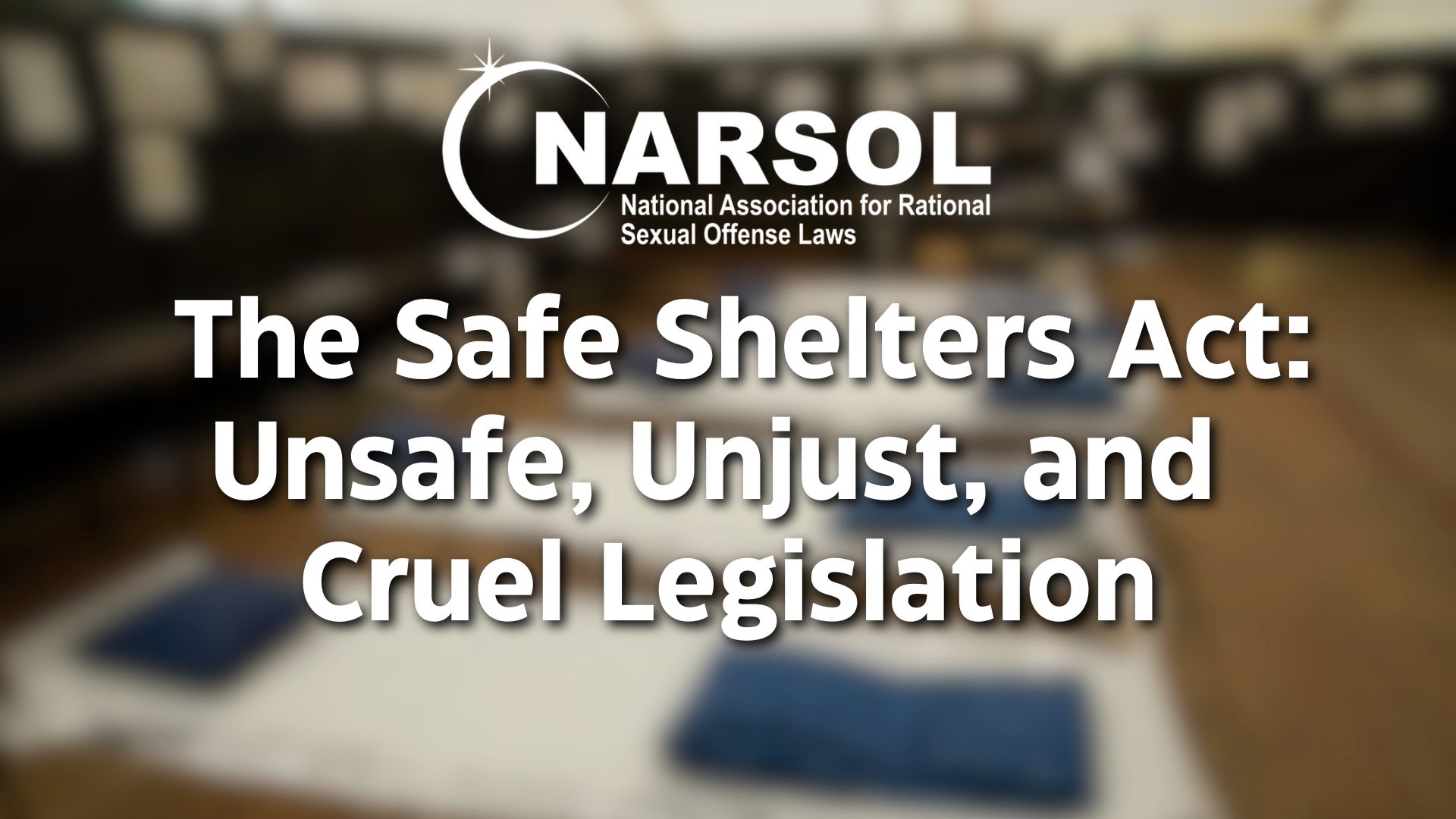NARSOL criticizes Sheriff Billy Woods for questionable practices
This is an on-going situation, and updates will be posted when available.
By Sandy . . . Alan Kaub has been arrested in Florida for what, to many, seems like a strange reason: he’s been charged with failing to update the Marion County Sheriff’s Office regarding an out-of-state trip he planned but never actually took. Sheriff Woods will pontificate that he is keeping the community safe, and this will be recorded as a sexual offense case, helping law enforcement perpetuate the high recidivism myth.
The facts reveal something far different. Here are the facts as reported by news outlets in Florida. Sometime last year, Mr. Kaub had the intention of leaving Florida and staying temporarily in Virginia. As he is not on probation or parole and has been completely faithful in fulfilling all registration requirements, this is well within his rights. He reported his intentions, as required, to his local law enforcement authorities, was provided with the necessary paperwork, and was told to register in Virginia.
That was six months ago, and the 74-year-old man, due to heightened concerns about travelling because of the virtual state of emergency our nation was and still is in due to Covid-19 restrictions, decided not to go to Virginia after all. When his next registration check-in date came, Wednesday, February 24, Mr. Kaub presented himself at the Marion County Sheriff’s Office to fulfill this duty, as he has done for almost twenty years. When asked when he had returned from Virginia, he said that he never went, that he has remained in Florida at his registered address.
He was then arrested and taken to the Marion County Jail, where he was charged with the sex offender violation of “Failing to cancel a planned visit to another state.”
My first reaction to the situation was, “What? Is that even a law?”
Yes, it is; Florida statute 943.0435.3(8) specifies, “A sexual offender who indicates his or her intent to establish a permanent, temporary, or transient residence in another state, a jurisdiction other than the State of Florida, or another country and later decides to remain in this state shall, within 48 hours after the date upon which the sexual offender indicated he or she would leave this state, report in person to the sheriff to which the sexual offender reported the intended change of permanent, temporary, or transient residence, and report his or her intent to remain in this state. The sheriff shall promptly report this information to the department. A sexual offender who reports his or her intent to establish a permanent, temporary, or transient residence in another state, a jurisdiction other than the State of Florida, or another country but who remains in this state without reporting to the sheriff in the manner required by this subsection commits a felony of the second degree, punishable as provided in s. 775.082, s. 775.083, or s. 775.084.”
Common sense says that he was where he was registered, that he had been there for as long as that had been his residence, that he had always been in full compliance with registration, that he had no re-offense or issue of any type for almost twenty years, that he is 74 years old, that he had committed no crime or re-offense in the six months that Florida thought he was in Virginia, that if there had been any period of potential risk, it was over with no incident before the charges were filed, and that the whole thing is nonsense.
The law says he committed a second-degree felony with the top punishment for this being a term of imprisonment not exceeding 15 years and a fine of $10,000.
If Mr. Kaub spends even one year as a guest of the Florida penal system, it will be at a cost of approximately $22,000.00. His fine would pay for less than half of that, assuming he can afford to pay it.
Mr. Kaub has, according to sources, been released on bond. He has a court date of March 30 at 9 a.m. where he will be required to answer the charge.
I pose the following questions:
- Keeping in mind that the sexual offense registry is a CIVIL regulatory scheme, how did an oversight, in the absence of any crime or any other neglect of duty, become a second-degree felony in the state of Florida?
- Is close monitoring of registered persons after ten, or even five, years of an exemplary record the best use of Florida’s law enforcement resources?
- Is this the right time to seriously consider limiting excessive prosecutorial and police funding which allows them the ability to pursue situations which contribute not one iota to public safety?
- Does a benign mistake, such as failing to report a decision to stay home rather than go on vacation, merit sending a person to prison for what could be a life sentence?



Was the defendant advised of his right to remain silent prior to questioning him? Was he provided the opportunity to have a lawyer assist him in answering the questions of the sheriffs employee?